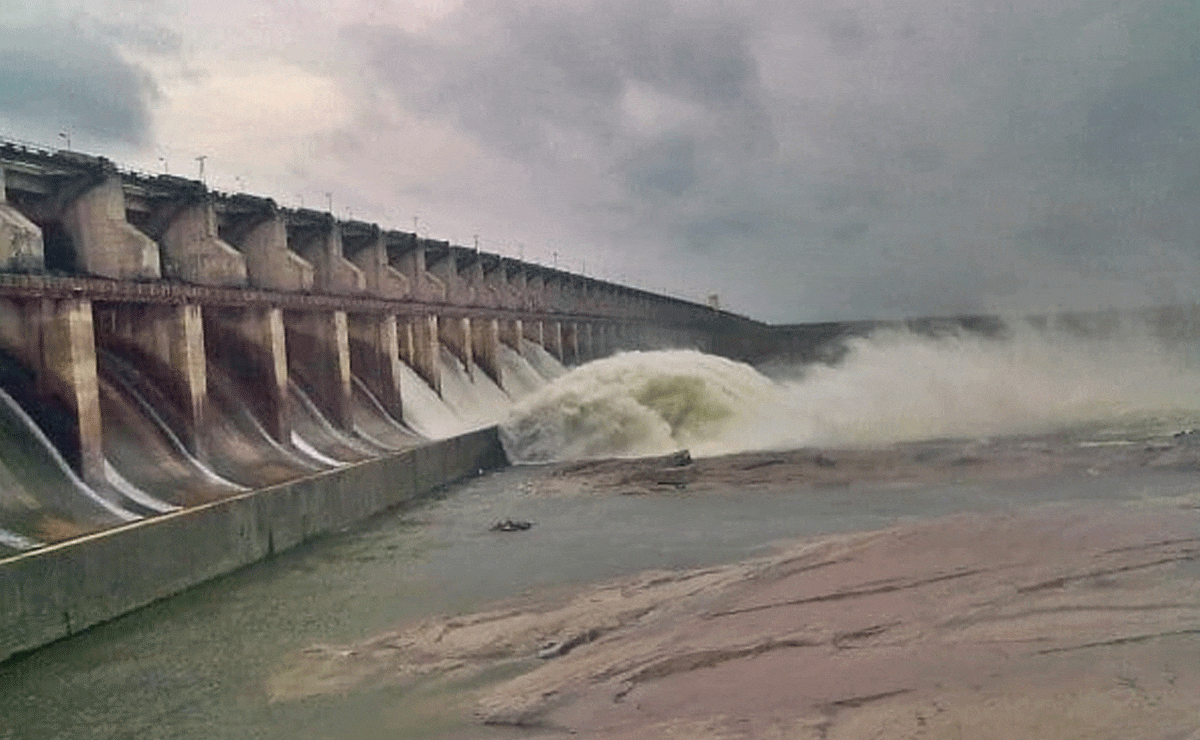Big Win for Telangana: Centre Blocks Andhra’s Godavari Project
In a significant development, the Union Ministry of Environment, Forests and Climate Change (MOEF&CC) has denied Andhra Pradesh’s (AP) request for environmental clearance terms for the controversial Godavari-Banakacharla link project.

Hyderabad: In a significant development, the Union Ministry of Environment, Forests and Climate Change (MOEF&CC) has denied Andhra Pradesh’s (AP) request for environmental clearance terms for the controversial Godavari-Banakacharla link project. This move is being hailed as a major victory for Telangana, which has consistently opposed the project.
Table of Contents
Environmental Clearance Denied Due to Inter-State Water Disputes
The Expert Appraisal Committee (EAC) of the MOEF&CC, during its meeting on June 17, noted several unresolved issues related to Godavari water sharing between AP and Telangana. The committee stated that the project might violate the 1980 Godavari Water Disputes Tribunal (GWDT) award.
The committee concluded that AP must consult the Central Water Commission (CWC) to assess the availability of floodwaters before even submitting a proposal for Terms of Reference (ToR), which is a prerequisite for an Environmental Impact Assessment (EIA).
Also Read: Govt Land Misused? Former HMDA Heads Under Fire for Puppalaguda Project Clearance
Telangana’s Concerns Echoed by the Centre
The Telangana government, led by Chief Minister A. Revanth Reddy, had raised objections to the project multiple times, including in a recent meeting with Union Jal Shakti Minister C.R. Patil on June 19. Telangana argued that the Godavari-Banakacharla link project would harm the state’s water interests and was being pursued by AP without proper inter-state agreements.
Project Faces Multiple Environmental Hurdles
The Godavari-Banakacharla project, as proposed by Andhra Pradesh, has several critical environmental concerns:
- Forest land required: 7,179 hectares (out of 14,064 ha total land)
- Submerged area: 24,062 hectares (including forest land)
- Passes through Nagarjunasagar-Srisailam Tiger Reserve
- Includes 19.5 km tunnel under tiger reserve
- Muck from tunnel excavation: 47.9 lakh cubic metres
- Muck from canal excavation: 3.75 crore cubic metres
- Solid waste from labour camps: 2,567 tonnes annually
These factors further strengthen the case for withholding environmental clearance until a detailed review and inter-state consultation is conducted.
What’s Next for the AP Government?
With the rejection of ToR, the AP government cannot proceed with its planned EIA study, effectively stalling the project. The pre-feasibility report submitted earlier is not sufficient to move forward, and CWC clearance is now mandatory.
The Centre’s decision aligns with Telangana’s stance and emphasizes the need for inter-state coordination, environmental safeguards, and adherence to legal water-sharing agreements before launching large-scale infrastructure projects.
